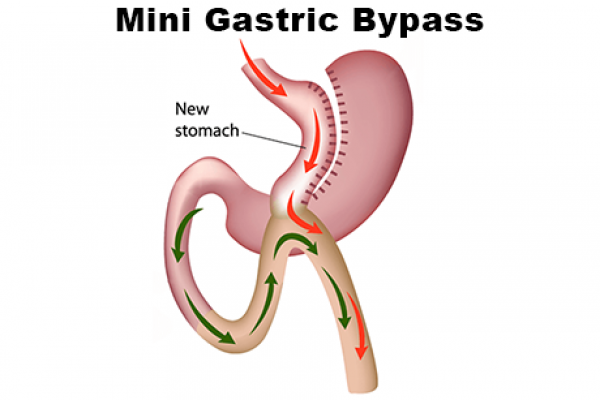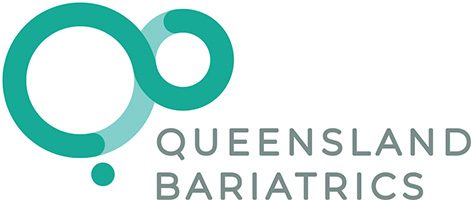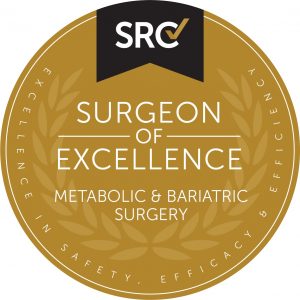
Mini Gastric bypass or Single anastomosis Gastric Bypass is a weight loss procedure where the first step is to create a smaller stomachwhich is then connected (anastomosed) to the intestine, bypassing between 1.5m to 2mof the part of the intestine.This still leaves approximately 6m of small intestineto absorb the nutrients from food. Which means the gastric bypass works in two ways , firstly meal size is reduced to a small plate by the reduction in the stomach size approximately ¾ of a cup long, then only 80% of the energy is absorbed from the food. It is usually performed with laparoscopy or keyhole surgery. Mini Gastric bypass surgery usually takes approximately 75 mins to perform. Most patients stay one to two nights following surgery, and usually will need 10-14 days off work.This technique differs from the traditional Roux-en-Y Bypass (RYGB) which requires two connections (anastomoses)and therefore is usually lower risk than Roux en Y Gastric Bypass.




